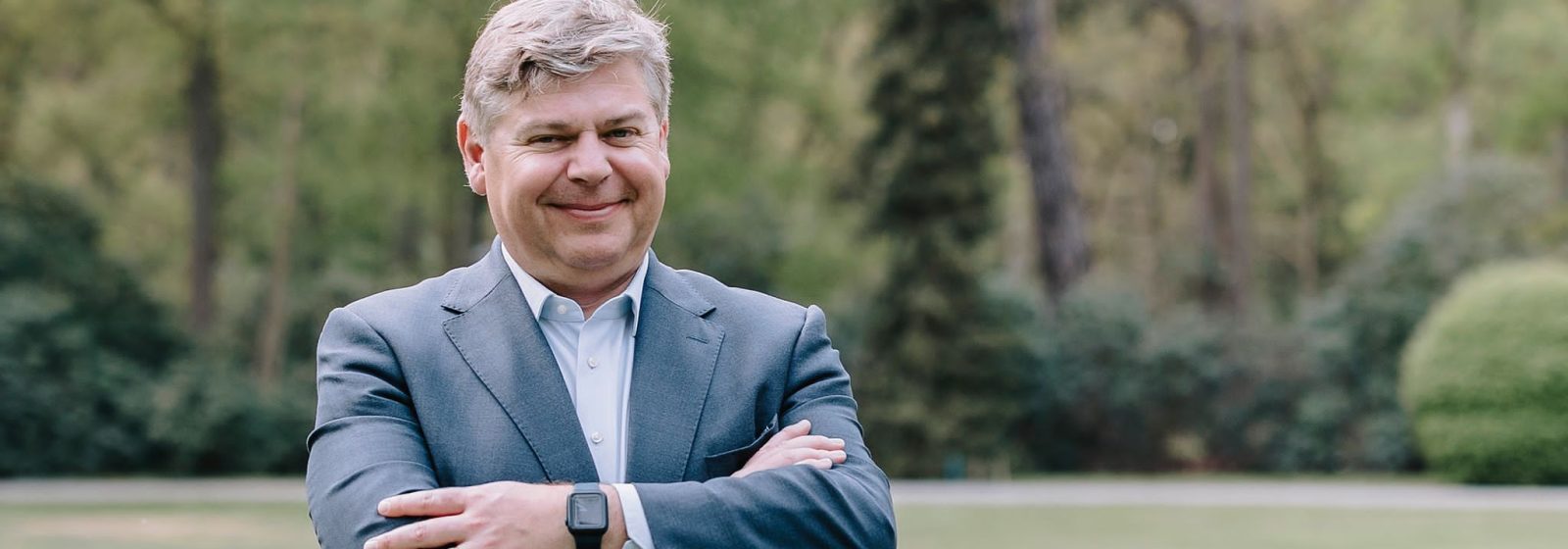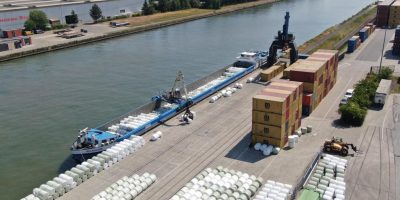
The non-profit organisation Netwerk De Vlaamse Waterweg has a new chairman with Jan D’Haeyer, founder of multimodal operator Shipit. According to him, one of the main challenges within the modal shift is the need for space to do business.
By space to do business, Jan D’Haeyer not only means physical space for quays and warehouses, but also room to move within the framework of legislation and public services.
Netwerk De Vlaamse Waterweg vzw groups the companies/concessionaires along the waterway, and more generally, all users of the waterway. The organisation emerged from the merger of the network organisations Waterwegen en Zeekanaal (W&Z) vzw and De Scheepvaart vzw. “The asbl has about 300 members. I had been active on the board for some time and a long and loyal member of W&Z. With Shipit, we are also an active member, both on the waterway and as a concessionaire. The chairman is elected by the directors. Combining the chairmanship with Shipit and my family will be quite a challenge,” says Jan D’Haeyer.
D’Haeyer succeeds Francis Wanten, who held the position as chairman for the past four years. “He contributed greatly to the professionalisation of the organisation, the growth of the membership, the vision and the mission,” he expresses his appreciation for his predecessor.
The watchwords of the Network The Flemish Waterway are connect, facilitate and inspire
According to him, the network has an important social role. “Goods transport continues to grow, but the modal share of inland navigation must also grow if we want to improve our liveability and achieve the climate goals. With our companies, we want to tackle the challenges facing the sector shoulder to shoulder with the government. We promote and defend the interests of our members. We organise events with speakers with a message,” he says. The network is divided into four sub-basins, each of which in turn organises small and large events that are close to the members. “For example, in August 2024 we will visit the construction site for the tunnel elements for the Oosterweel link in Zeebrugge. Earlier this year, there was an event on urban distribution in Brussels. The three watchwords of the Network The Flemish Waterway are connect, facilitate and inspire”.
There is a lot of space on the water, but little room to do business next to it
Following the elections, the network released a memorandum with 12 thematic questions. “First and foremost, we want space to do business. For modal shift, there is a lot of space on the water, but there is little space to do business next to the water. Available space should be shared in harmony with recreational activities. There is also the staff shortage in inland navigation and technological developments. As entrepreneurs, it is difficult to turn the tide, but as a government it is even more difficult,” he realises.
With the memorandum, the network further calls for minimum guaranteed services in case of strikes, development of additional water-bound space through reorientation of existing zones, improvement of commercial services to promote waterborne shipping and maintenance of infrastructure and new volumes.
Greening
Greening is also high on the agenda. “As Shipit, we already had access to technology to run ships on hydrogen ten years ago. The problem was that shippers did not want to pay for it. As Flanders, we need to maintain our leadership position in Smart Inland Shipping thanks to robotisation, remote control and so on. We need to embrace technology and use space well. To create space for business, the licensing policy needs to be simplified. Today we are too often faced with people who do not see the need,” he explains.
Infrastructural challenges
Furthermore, the memorandum also calls attention to a number of infrastructural challenges. “The future new Scheldt Bridge threatens to complicate nautical accessibility for industry along the Zeekanaal and Scheldt. In turn, another major project, the Seine-Nord canal, could promote modal shift and will also provide a lot of work for inland navigation. Finally, we call for a solution for inland navigation from three layers of containers when building the canal tunnels for the Oosterweel link. As a logistics hub, Flanders must move forward and not backwards,” he concludes.


